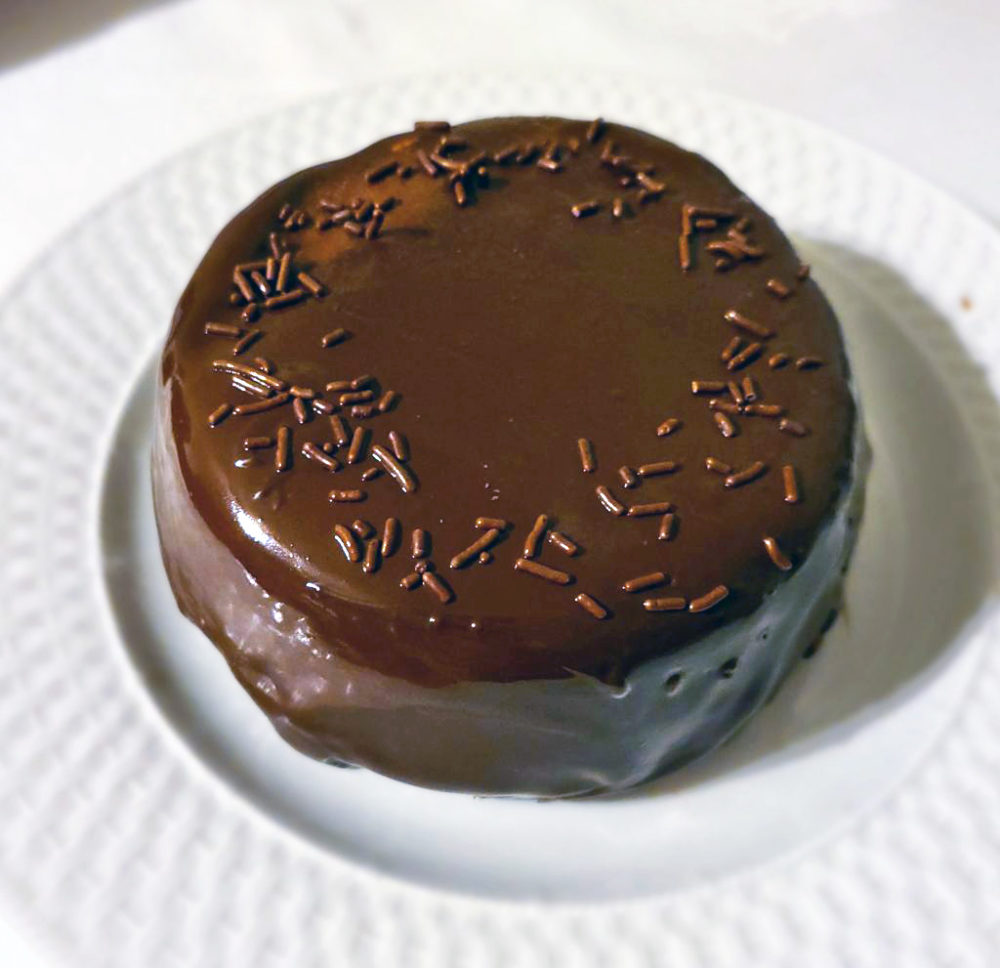Disclaimer: This article discusses orthorexia and its symptoms. If you suffer from or have suffered from an eating disorder, please do not read this post if you are easily triggered by discussions of food and diet.
September 9, 2010. I was a sophomore in college, swept up in animal rights fervor and laughingly idealistic. My best friends invited me to celebrate my birthday at a favorite vegan restaurant. The company was lovely; we discussed our new classes, compared summer vacations, and indulged our nerdiness by reviewing animal rights literature and feminist manifestos. As we reached the end of our meal, my friend summoned our waitress, who soon approached our booth with a decadent chocolate cake. Suddenly, almost as quickly as my contentedness had arrived, it was diminished. For most people, a rich dessert would evoke feelings of anticipation and happiness. In my case, the mere sight of a sugar and flour concoction was enough to send me into paralyzing anxiety. Although I didn’t know it at the time, my thoughts and behaviors were classic symptoms of orthorexia nervosa.

Coined by Steven Bratman, MD, in 1996, orthorexia nervosa literally means “fixation on righteous eating.” Unlike other types of eating disorders, like anorexia and bulimia, which tend to focus on the quantity of food and its effects on the body, orthorexia–though not formally recognized as an eating disorder–focuses on the quality and healthfulness of a particular food or group of foods. Of course, maintaining a diet rich in vitamins and nutrients is something for which we all should strive. There is a point, however, at which this devotion becomes an unhealthy obsession. Orthorexics cling to a self-constructed notion of what is most healthy and “pure”; some vilify sugar and carbohydrates, while others refuse to eat particular food groups, like meat or dairy. In a constant effort to maintain this dietary rigidity, individuals who suffer from this eating disorder are likely to experience social anxiety and isolation.
Though orthorexia was identified in the 1990s, the disorder has become more widespread in recent years. Women (and some men), in pursuit of a healthy lifestyle and sustainable way of eating, become amenable to a variety of diets, many touting “natural” and “clean” foods. This language is undoubtedly alluring, and it is likely to interest increasingly large segments of the population.
Veganism and orthorexia: Are they linked?
Among the diets promoting healthy way of eating, veganism is often stigmatized as a diet comprised solely of vegetables, nuts, and seeds. It’s not uncommon for me to explain that I’m vegan and receive concerned looks, as though my diet is somehow synonymous with “malnourished.” As with any way of eating, there are indeed individuals that try veganism and vegetarianism from orthorexic motives. However, it is wrong to assume that a plant-based diet and orthorexia are synonymous. People come to veganism for a variety of reasons; some wish to end animal suffering, some don’t enjoy the taste of meat, and others refuse to contribute to the environmental degradation that is caused by modern industrial agriculture. When people approach any diet, including veganism, they must be mindful of the zealotry involved and seek balance in their own lives.
Recovery
First and foremost, if you or someone you know is suffering from orthorexia (or any eating disorder, for that matter), you must learn to show compassion for their struggle. Eating disorders are isolating and lonely. When I was in the depths of my own journey, I would often decline opportunities to see friends, family, and boyfriends because I didn’t want to attempt to justify my abnormal behaviors. Though I still struggle with these compulsions, I have found that a strong support system has been instrumental to my recovery. With encouragement from friends, family, and my therapist, I never feel quite so alone in my struggle. Some days are better than others, but my supports serve as a constant through which I can always reach out when needed. After much work on shifting my perspective, I rejoiced at the chance to celebrate my 22nd birthday this year with a slew of desserts, including–you guessed it–chocolate cake. This time, my focus was on the experience of the celebration rather than the nutritional profile of my meal.
Orthorexia isn’t simply a physical struggle; it climbs into the corners of one’s mind, asking all thoughts to center around consuming only the healthiest and purest foods. Review the questions in “Do I Have Orthorexia?” if you believe you or a loved one may be suffering from this illness. Once you have identified that orthorexia is present, seek professional help immediately. You can also visit the National Eating Disorders website to find additional help and support. Whether you contact a therapist, explore a nutritionist’s advice, or identify other proactive measures toward recovery, remember that you are never, ever alone.
Also see: Finding the Power in Powerlessness
___
Photo: Cassidy Klingman
